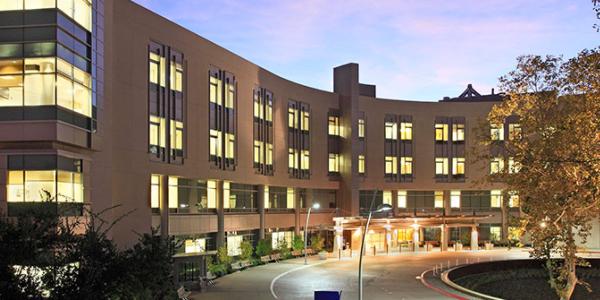February 4, 2021 - The 9th annual Norma's Literary Luncheon was held virtually on February 4. Author and The New Yorker staff writer Susan Orlean gave the featured presentation, which focused on how she came to write The Library Book, one of The New York Times’ notable books of 2018. She then engaged in a delightful conversation with author Kelly Corrigan, host of the PBS interview program "Tell Me More with Kelly Corrigan" and the podcast "Kelly Corrigan Wonders." This year's fundraiser benefited three El Camino Health wellness programs focused on lifestyle that meet diverse cultural preferences in our community: Lifestyle Medicine, Chinese Health Initiative, and South Asian Heart Center. Nearly 200 people tuned in live or watched a post-event recording.
Ms. Orlean opened by reading an excerpt from the book that described how she developed a love of libraries and reading in childhood, which was nurtured by her mother. As an adult visiting the Los Angeles Public Library with her own kindergarten-age son, she realized that she didn't actually know how a library functioned, particularly a big city library. "That to me is always a great curiosity – take something very familiar that I think I know, and acknowledge that I really don’t know a lot about. It gives me that itch and curiosity to figure out how this thing works, what makes it tick." Her talk explored the powerful connection people feel to books and libraries, and why libraries and books matter. "Libraries replicate who we are," she postulated. "They contain all the stories that really matter to us as a community and keep them safe the way an individual really can’t."
Kelly Corrigan picked up on that theme with her insightful questions. "We are a society that builds monuments to stories," she agreed. Together they explored how libraries and democracies relate to each other, and how public funding for them illustrate society's values. "Libraries exist as the portal to knowledge and information," Ms. Orlean explained. They provide a path to education and self-improvement for the betterment of all people that encourages meritocracy. "Part of the richness of the library is being in a place where everybody belongs," added Ms. Corrigan. Both hope awareness of libraries' worth is growing today during the pandemic, when we cannot physically visit them.
Like Susan Orlean, Norma Melchor, who we remember each year at Norma's Literary Luncheon, was an avid reader. She was a strong supporter and generous benefactor of El Camino Health for five decades and met regularly with her book club all that time. Since 2013, the luncheon that bears her name has raised more than $1 million for El Camino Health programs that help women and families, and it has been generously underwritten by the Melchor family as they carry forward Norma’s commitment to the hospital. In opening remarks, El Camino Health Foundation President Andrew T. Cope gratefully acknowledged them and paid tribute to committee members Judie Wolken, Betsy Dawes, and Mary Scrivner "whose creativity, enthusiasm, and love for this event were put to the test this year but only grew stronger." Judie, Betsy and Mary look forward to celebrating the luncheon's 10th anniversary in person next year.
